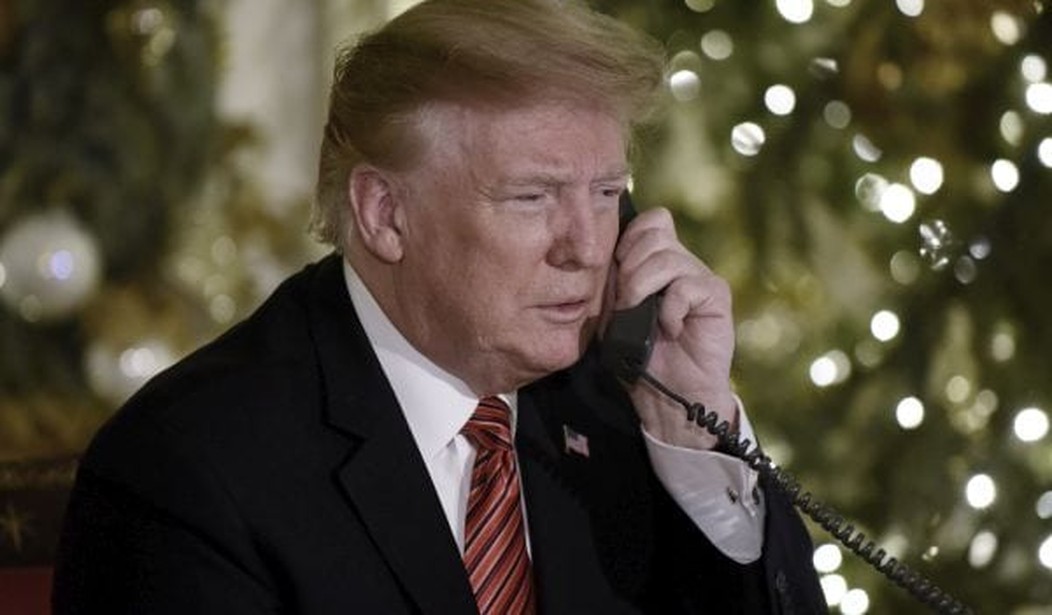A draft executive order from the White House would put two federal agencies — the Federal Communications Commission (FCC) and the Federal Trade Commission (FTC) — in charge of shaping regulations to limit how Facebook, Twitter, and other big tech companies curate content on their websites. While most big tech employees are liberal and many conservatives (and liberals who think for themselves) have experienced social media bans, conservatives are divided on whether or not regulation provides the best remedy for big tech bias.
CNN obtained a summary of Trump’s draft order, currently entitled “Protecting Americans from Online Censorship.” The order claims the White House has received more than 15,000 complaints about social media platforms censoring American political discourse — complaints the White House will share with the FTC.
The order will direct the FTC to open a public complaint docket and work with the FCC to develop a report investigating how tech companies curate their platforms and whether that curation is politically biased. The investigation would target companies whose monthly user base accounts for one-eight of the U.S. population or more, including but not limited to Facebook, Google, Instagram, Twitter, Pinterest, and Snapchat.
The proposal also seeks to narrow the protections under Section 230 of the Communications Decency Act. That provision gives internet companies immunity for content placed on their platforms. Removing this immunity would leave these companies liable to face charges of defamation and other legal actions holding them accountable for messages posted by their users on their platforms. Section 230 also gave them some immunity for taking down inciting language and other objectionable content, so long as they are acting “in good faith.”
Jerry Johnson, former president and CEO of National Religious Broadcasters (NRB), has advocated for weakening Section 230 as a response to big tech bias.
Libertarian-leaning groups like the Competitive Enterprise Institute (CEI), however, have warned that giving government more power over big tech will only worsen the problem, and introduce new problems. CEI warned against Trump’s order before the draft had been completed.
“President Trump’s proposed compelled speech executive action would require a significant government apparatus to oversee it, as would the legislative proposals we have seen from Republicans like Senator Josh Hawley (R-Mo.). If the right’s concern is the left’s presumed dominance of discourse, the remedies of treating Facebook, Google, Twitter and the like as monopolies or common carriers would worsen the problem,” warned CEI Vice President for Policy Wayne Crews. “Requiring that they ‘certify objectivity’ will not protect the public nor conservative speech, but deliver the Internet into the administrative state’s clutches, as well as violate the First Amendment.”
“Administrative bodies equipped with such heft are a threat to public discourse; they are not classically liberal nor constitutional in origin, nor will they behave as such if implemented as policy,” Crews warned.
“If the Trump White House goes forward with this executive order, conservatives will have helped erect an anti-First and Fifth Amendment machinery to police online speech that they are highly unlikely to control as time goes on. Pres. Trump’s enlarged Federal Trade Commission and Federal Communications Commission of the future will be dominated, as regulatory agencies are, by administrative state progressivism and top-down rules and planning,” he said. “One thing is certain; tomorrow’s Speech Police are not going to think political neutrality or criteria for a certification of objectivity mean what Trump (or Hawley) thinks they mean.”
Crews suggested public pressure is a better tool than government regulation to combat big tech bias. “It is the case that some social media firms could violate their terms of service as far as excluding certain content, but the way to deal with that is public blowback, or at most on a case-by-case basis.,” he said. “Public officials who respect the Constitution should not propose an entire regime to govern the Internet. Such an order would mark the end of the Trump Deregulatory Agenda.”
“I have respect for the Competitive Enterprise Institute, but I respectfully disagree,” NRB General Counsel Craig Parshall told PJ Media. “I think it’s premature to say that it would damage First Amendment rights if Congress gives the FCC and/or the FTC any jurisdiction whatsoever over Big Tech platforms in the light of their abuse of their monopoly status by their past history of viewpoint suppression of otherwise lawful viewpoints.”
Parshall advised that “any regulation should be as light touch as possible rather than heavy-handed, and stimulate rather than repress competition and innovation. But in the end, if we care about free speech, then we should care about the free speech of citizen content providers who provide the opinions, viewpoints, and information that Big Tech conduits trade in.”
It seems extremely likely that Trump will create some form of big tech regulation, and conservatives are right to worry that administrative overreach could make the problem worse. The president should consult with a broad spectrum of conservatives on the issue, and perhaps use his bully pulpit more than federal regulation.
Follow Tyler O’Neil, the author of this article, on Twitter at @Tyler2ONeil.









Join the conversation as a VIP Member